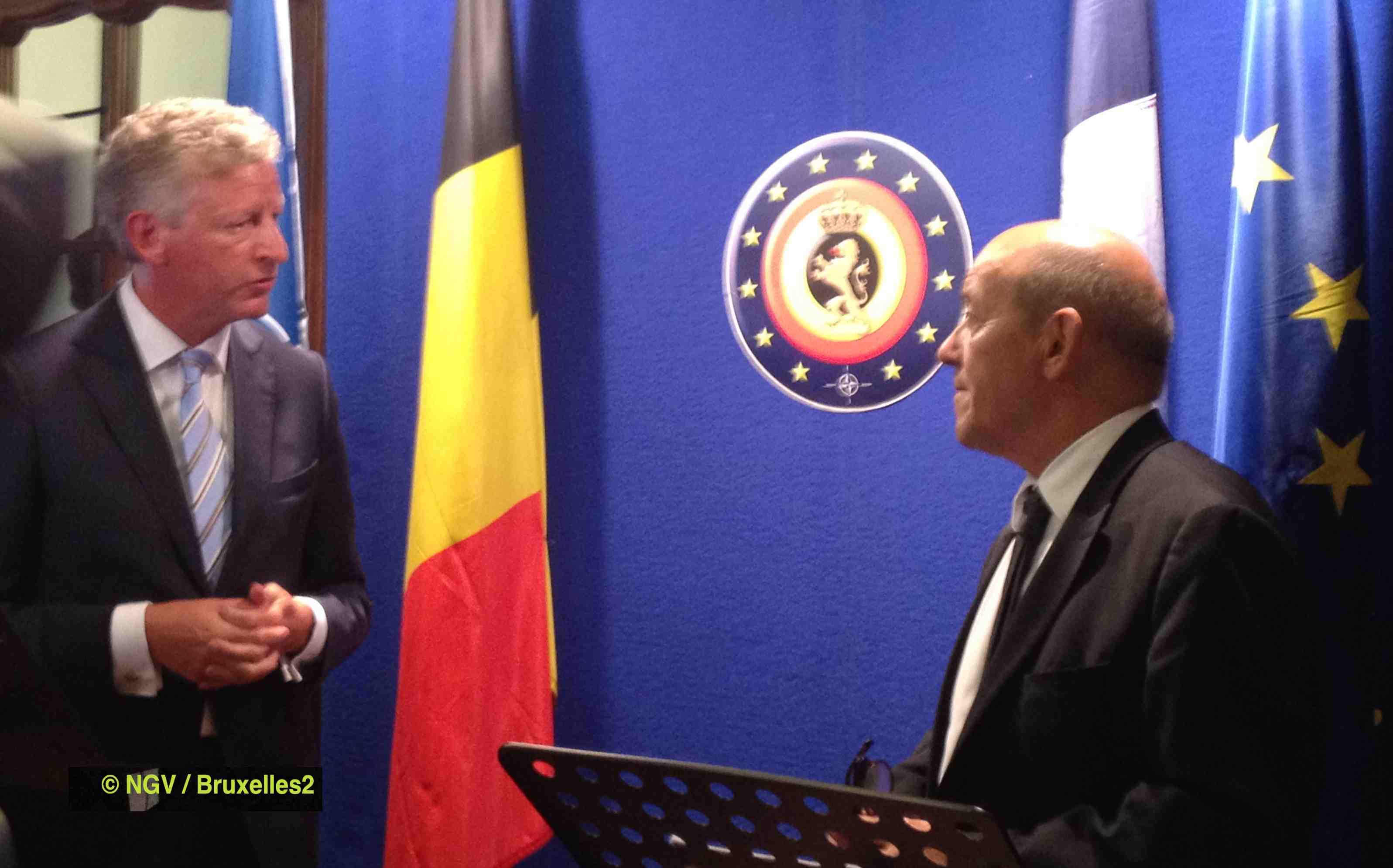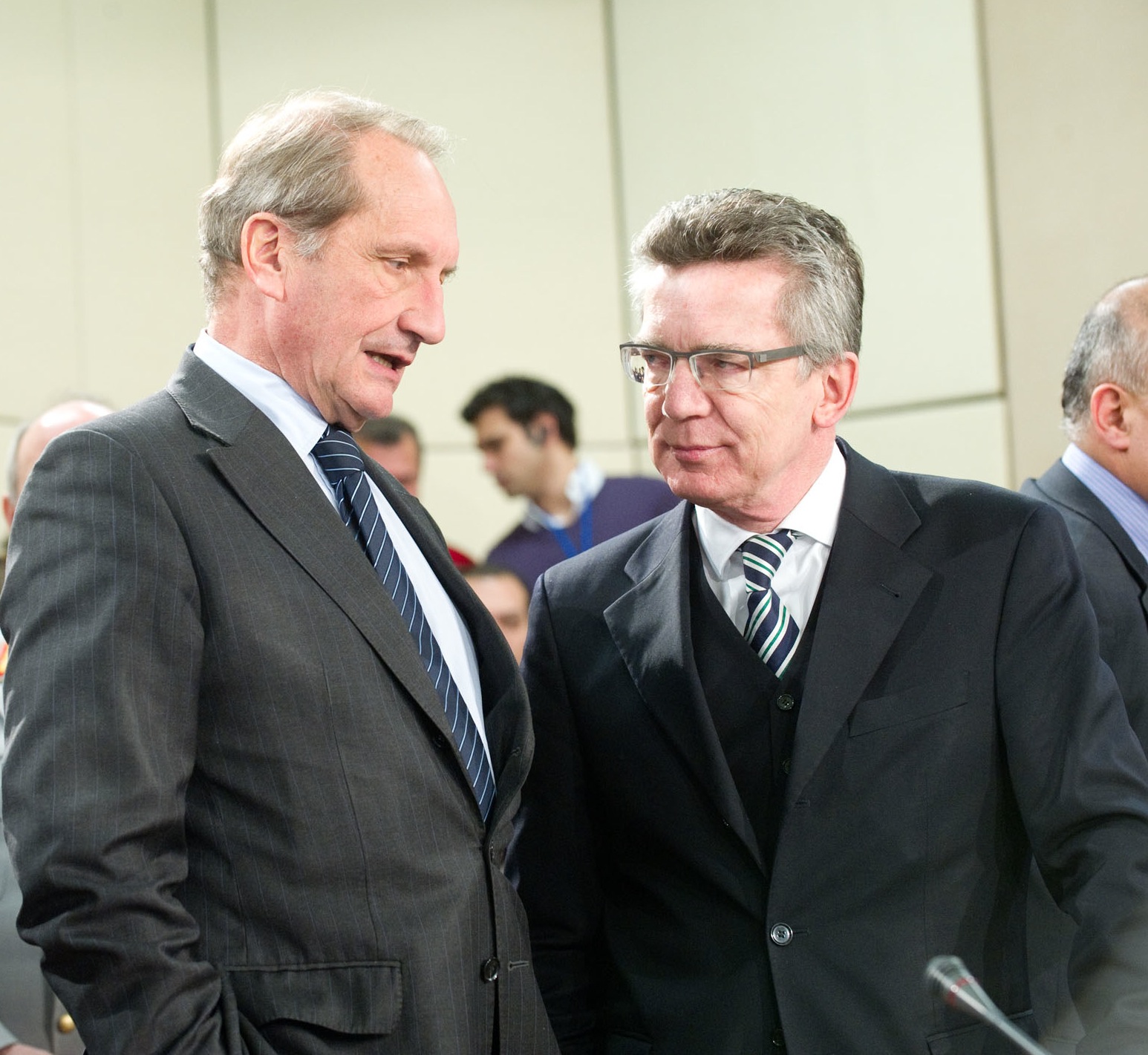We must start the debate on the High Representative: immediately!
(BRUXELLES2) But why is everyone interested in the future President of the European Commission and not in the High Representative of the EU for Foreign Policy? Here is the question we could ask ourselves. And that we must ask ourselves, urgently...
Admittedly, the position of President of the Commission is older (created in the 1950s, it emerged from the shadows in the 1980s, with the personality of Jacques Delors helping) and more emblematic (its power of action is broad). While the post of High Representative has only existed for ten years and has a more discreet role. But in 10 years, the European Union's foreign policy has emerged from limbo and Javier Solana, its current holder, has given it, year after year, its letters of nobility. The Treaty of Lisbon consecrates it by giving it an importance that no post at European level has ever had. In addition to its current powers - external representation, miss dominici European Union, power of initiative in matters of defense and foreign policy, hierarchical authority over military or civilian crisis management bodies, etc. - he becomes European commissioner, with the title of vice-president, having authority over the foreign service, and chairs the Council of Foreign Ministers.
Admittedly, the Lisbon Treaty is not yet in force. What the interlocutors to whom I asked answered me to discard: "Ooh lala. But we have to wait for the Treaty of Lisbon. Because it changes the profile enormously"."All in good time". Etc... (1). I persist and sign, it is urgent to appoint the future High Representative for EU foreign policy.
Many good reasons militate in favor of a quick decision
1° The end of Solana's mandate. The mandate of Javier Solana, current High Representative, ends in mid-October. The interested party confided that he did not wish to be renewed (read: Solana will not re-enlist). And it would seem logical that the discussion now engages on his successor. We can of course ask Javier Solana to extend his mandate for a few weeks or a few months - which will no doubt be done - but that leaves the question of his successor open.
2° A position with a delicate succession. Discussion all the more necessary since in ten years of mandate, its current holder, Javier Solana has marked this position with his imprint, discreet, but real. A series of contacts, often personal, have been made. And it seems important that his successor is at his side for more than a few hours for a smooth handover.
3° The power of initiative. The High Representative – whether for the Treaty of Nice or the Treaty of Lisbon – is appointed by the Member States. It reports to them but at the same time drives new policies. Above all, it has the power of initiative in matters of foreign policy and defense missions. Which does not place in the same rank - in both cases - as the other personalities.
4° Find the right balance. The claim of the socialist group shows that the debate is becoming politicized. Which would be dangerous. A good candidate can be a socialist. But a socialist is not automatically a good candidate. But she has the merit of asking the question. Because even if this rule is not inscribed anywhere, there is a search for political and even geographical balance (small/large country) between the two positions (President of the Commission, High Representative).
Some criteria
What will his profile be? Nobody wants to say it. Because answering this question is already giving an indication of the possible name(s). But some indications can be useful to frame the debate. None of these criteria is written down. But they seem (more or less) commonly heard and circulate among the ranks of diplomats.
1st criterion: a Minister of Foreign Affairs. It seems necessary that it be (at least) a Minister of Foreign Affairs (since he will have to chair the Council of Ministers of Foreign Affairs, in the Lisbon version, or that he will have to represent them outside the EU , in the Nice & Lisbon version), or even a Prime Minister (as an interlocutor whispered to me. To appoint a simple diplomat today would be to demote the function in relation to the current profile.
2nd criterion: a minister who has traveled a bit and/or has a certain "political stuff". There are two divergent paths. Either we choose a personality with a European past, particularly as a commissioner. Which would be logical (in the Lisbon version, since the High Representative will sit on the Commission; and even in the Nice version, since the High Representative often has to work with the Commission). In this case, a candidate like the French Michel Barnier or the Italian Franco Frattini could be adequate. Either we choose a man who cut his teeth in defense or strategic affairs. Which is also logical because this man will have to manage the ESDP. In this case, the Dutchman Jaap de Hoop Scheffer, former NATO secretary would be in pole position (if he stops the mountain biking ![]() ). But not only: we can also think of Lord Robertson. Either we take a third track, a man who has a European history of international negotiation. We then find the Swedish Carl Bildt or the French Bernard Kouchner, who both went through the school of the Balkans; the Spaniard Moratinos passed through the school of the Near East. All these names are EPPs except Moratinos (socialist) or Kouchner (socialist "unassimilable").
). But not only: we can also think of Lord Robertson. Either we take a third track, a man who has a European history of international negotiation. We then find the Swedish Carl Bildt or the French Bernard Kouchner, who both went through the school of the Balkans; the Spaniard Moratinos passed through the school of the Near East. All these names are EPPs except Moratinos (socialist) or Kouchner (socialist "unassimilable").
3rd criterion: good health. It may seem surprising. But it seems important that the candidate found be, if not of good youth, at least ready to assume, in terms of his health and/or his age, the full capacity of this position which involves numerous trips abroad, sometimes in conditions that are not obvious, and a possibility of endurance in the face of the possibilities of multiplication of crises. When we see what the current incumbent has endured, we better understand the relevance of this criterion.
4th criterion: nationality. Like the previous one, it is certainly one of the most taboo criteria. But very real! The incumbent must come from a country - small or large - which has a proven presence in several parts of the world, a certain pre-eminence either by its historical weight (Spain, France, United Kingdom, Netherlands), its economic value (Germany, Italy) or its proven international commitment (Belgium, Denmark, Ireland, Sweden, Finland, etc.). Applications from countries that have a particular position on European defense policy are difficult (Denmark, United Kingdom). As for possible candidacies from countries of Central and Eastern Europe (Bulgaria, Poland...), they seem to me difficult to endorse for the founding States, even if the quality of certain candidates is proven, to have a role of representation global: from China to Latin America, via Africa. Also excluded are nationals of countries which have already obtained an important position at European level (Denmark, Portugal): one (Rasmussen) being Secretary General of NATO, the other (Barroso), being President of the European Commission .
5th criterion: be recognized and designated by their Member State. We too often forget this criterion when browsing the possible candidates. But it is also necessary that the conditions of internal political life allow the appointment of the person, having regard to his career and his political support, his personality and his positions.
Thus some applications seem difficult. Franco Frattini for his lack of experience in foreign policy and his sensational positions on immigration has little chance of passing the ramp for a hearing in the European Parliament. Lord Robertson saw the particular position of the United Kingdom on the ESDP. Bernard Kouchner has a brilliant past but his sense of independence and declarations could frighten several Member States. Carl Bildt was well placed but somewhat angered Germans and French with his very enthusiastic declarations on Turkey. Joshka Fischer belonging to the Greens is badly placed on the German chessboard to be designated by his country. (also read: some candidates).
Result. Solana's term extended. It seems difficult for the 27 Heads of State to make an appointment before the Irish referendum, therefore before the summit on 29 and 30 October. Unless the 27 decide to speed up the timetable and take advantage of their meeting on September 17, officially devoted to... Influenza A to discuss this subject. This has a practical implication. Javier Solana, whose mandate ends in mid-October, will not have to pack his bags right away. And his mandate should be extended, at least by a few weeks, or even a few months. It seems, in fact, dangerous to appoint an interlocutor, chief diplomat of the EU, without this relay there.
(Nicolas Gros-Verheyde)
(1) A sorrowful spirit might answer: "why not wait then for the President of the European Commission". But then you really have to be sad ![]()


Comments closed.